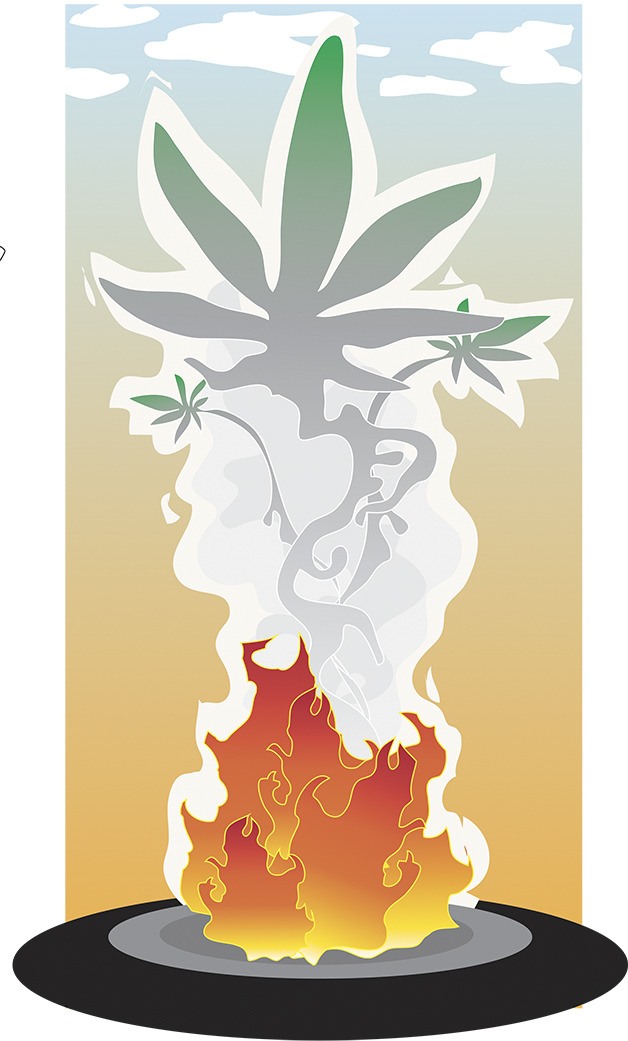With the passage of I-502 in 2012, development of marijuana legislation and marijuana research has surged to unprecedented levels. In an attempt to clearly translate new laws and research, the Reporter and Courier-Herald will examine these issues in a four-part series.
Part one of this series addresses the issue of previous criminal convictions of possession of marijuana.
• • •
With a whole slew of marijuana-related legislation on the docket in Olympia this session, it’s clear legislators are more comfortable with the idea of weeding out the issues surrounding recreational pot legalization.
Initiative 502, passed by voters in the 2012 election, was still in its infancy when the 2013-14 biennium began.
It appeared legislators wanted to back off from pot until they were armed with more information to better talk about the issues that surrounded it. Only about 10 percent of the filed bills relating to marijuana were passed into law at the end of the last biennium.
One of the bills that didn’t make the cut was reintroduced this session by its primary sponsor, Rep. Joe Fitzgibbon, a Democrat from the 34th district. If enacted into law, the bill would allow people with a single misdemeanor marijuana conviction to vacate their conviction status. This means they could have their case revisited and the current law applied to their previous crime.
The bill would only apply to individuals 21 or older at the time of conviction and in possession of 40 grams or less of marijuana. Fitzgibbon said the law would not apply to people with multiple convictions, marijuana-related or otherwise.
“(It’s) aimed at those people that don’t have other charges on their record,” Fitzgibbon said in a phone interview.
When the bill was introduced in the last biennium, Fitzgibbon said there was an estimated 3,000-4,000 people this would affect.
For those people, he said, it would improve their ability to get a job and/or apply for a mortgage.
The bill, HB 1041, was read at a public hearing in the House Public Safety committee Friday, Jan. 16 in Olympia.
Alex Frix, a public defender representing the Washington Association of Criminal Defense Lawyers, was the only one to testify about the bill because Fitzgibbon was unable to attend the hearing.
Frix spoke for only about a minute.
“In favor of this bill,” he said. “But, I don’t need a lot of time to say why… It is patently unfair to continue to punish people with the state of a conviction for possessing a now legal substance.”
No questions came from the panel of Public Safety Committee members.
Committee Chair Rep. Roger Goodman only made the comment that it was one of the quickest hearings they’ve ever had and the committee will be “seriously considering (the bill).”
During the 2013 session, the bill was passed out of the Public Safety Committee with a 6-5 vote.
Representatives Brad Klippert and Dave Hayes, both Republicans, voted against the bill in 2013. Both still preside on the Public Safety Committee as ranking minority member and assistant ranking minority member, respectively. Attempts were made to contact both lawmakers but they were unavailable to make any comment as of press time.
After the passing vote in the Public Safety Committee in 2013, it moved on to the House Appropriations Subcommittee on General Government and Information Technology where it was passed onto the Rules Committee for a second reading. The bill never made it to the House floor. No action was taken on the bill in the 2014 session.
Fitzgibbon said he hopes that legislators will be a little more open to talking about the issue of marijuana convictions during this session.
“Because we’ve had a little bit more time for the initiative to be in effect, I think there will be more, sort of, comfort with the idea,” he said.
The cost of implementing the bill if it becomes law could run about $465,000 from 2015 to 2017, according to the fiscal note attached to the bill. The majority of the cost is associated with staff salaries and benefits with about 80 percent of the total coming from the county level.
In estimating the cost, the Office of Financial Management determined there would be about 5,600 new hearings each year for the next two years associated with marijuana misdemeanor conviction vacations.
After that, the numbers dwindle to a cost estimate of $268,000 for the 2017-19 and 2019-21 bienniums, each.
House Bill 1041 had not been scheduled for another reading in the Public Safety committee as of Tuesday afternoon. More information on this bill can be found at leg.wa.gov.


